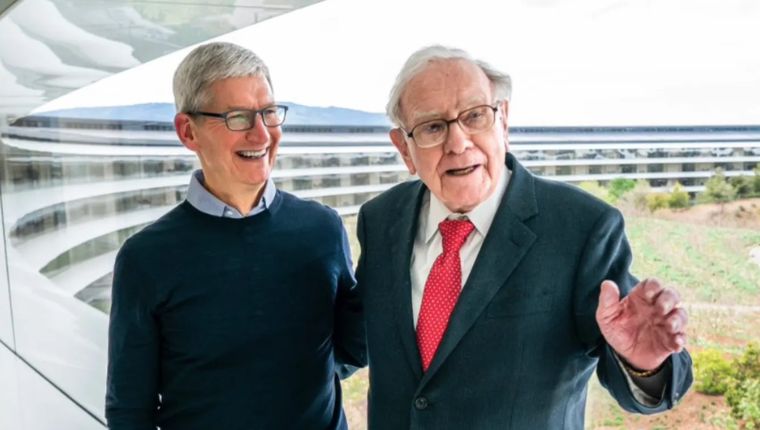The index investing ‘Guru’ has stepped down.

Yes, there’s a monumental announcement from Berkshire Hathaway’s 2025 annual shareholder meeting. Warren Buffett has stepped down as CEO. His legacy was of an extraordinary 60-year tenure as the longest-serving chief executive in S&P 500 history.
But is it just a change in the top?
To truly understand the Warren Buffett Way, let us revisit the remarkable life and unparalleled career of the “Oracle of Omaha,” examining his investment journey.
Who is Warren Buffett?
The Warren Buffett way is more or less based on the Value Investing principal. He stands as the gold standard for disciplined, long-term wealth building. Born on August 30, 1930, in Omaha, Nebraska, Buffett displayed an extraordinary instinct for business from a very young age. His early financial ventures began with remarkable foresight; by the tender age of 11, he had already purchased his first stock. At 13, he exhibited an unusual precocity by filing his own tax return, showcasing a deep understanding of financial mechanisms well beyond his years.
His formative years were not without challenges. According to Alice Schroeder’s authoritative biography, “The Snowball: Warren Buffett and the Business of Life,” Buffett grew up in a tense, emotionally difficult household. His father, Howard Buffett, a stockbroker and later a U.S. congressman, played a pivotal role in guiding his son, notably encouraging him to stay in school when he considered dropping out.
Buffett’s academic journey further refined his investment philosophy. He initially studied at the University of Pennsylvania before transferring to the University of Nebraska. A pivotal moment in his intellectual development came after his rejection from Harvard Business School; he subsequently enrolled at Columbia University. This decision, as he often recounted, proved to be one of the best turns in his life. At Columbia, he had the privilege of studying under Benjamin Graham, widely regarded as the father of value investing. Graham’s rigorous analytical approach to stock selection formed the bedrock upon which the Warren Buffett Way of investing was built.
Despite his immense success and a staggering net worth of $169 billion as of the Bloomberg Billionaires Index, making him the fifth richest person globally, Buffett maintains a remarkably simple lifestyle. He continues to reside in the modest Omaha home he acquired in 1958 for a mere $31,500, a testament to his grounded nature. Furthermore, he has consistently drawn the same $100,000 annual salary for over four decades, reflecting his focus on long-term value creation rather than personal extravagance.
Evolution of Warren Buffett’s Portfolio

The Warren Buffett Way transformed Berkshire Hathaway from a struggling textile firm, which he acquired in 1965, into a sprawling $1.164 trillion conglomerate.
This meteoric rise from a mere $38 billion valuation in 1996, according to CompaniesMarketCap data, serves as a powerful testament to his astute investment strategy.
His approach has consistently eschewed trendy speculation, instead favoring a meticulous process of acquiring fundamentally sound businesses at fair, often undervalued, prices. This philosophy has led to a diverse Warren Buffett portfolio, encompassing wholly owned entities like GEICO (insurance), Duracell (batteries), and Dairy Queen (fast food), alongside significant, publicly traded stakes in global giants such as Apple and Coca-Cola.
The following are Warren Buffett’s most impactful bets:
| Investment | Year | Details |
|---|---|---|
| National Indemnity & National Fire & Marine | 1967 | These represented Buffett’s initial significant foray into the insurance sector. This move provided Berkshire Hathaway with access to a substantial "float" – the premiums collected before claims are paid – which has historically funded decades of Berkshire’s lucrative deals and further diversified the Warren Buffett portfolio. |
| American Express, Coca-Cola, Bank of America | Various | Buffett made strategic investments in American Express during a major scandal, acquired Coca-Cola shares after the 1987 stock market crash, and invested significantly in Bank of America during the 2011 financial crisis. The combined value of these holdings now exceeds $100 billion, showcasing his ability to buy quality companies during periods of distress. |
| Apple | 2016 | A rare and remarkably successful venture into the technology sector for Buffett. He initially invested $31 billion, recognising Apple's strong brand loyalty and ecosystem. This investment soared to a peak value of $174 billion and remains Berkshire’s top holding, a testament to the wisdom behind the Warren Buffett Way of identifying enduring value. |
| BYD (China) | 2008 | Acting on the advice of his long-time partner Charlie Munger, Buffett invested $232 million in this Chinese electric vehicle (EV) manufacturer. The investment remarkably peaked at $9 billion and still holds a value of $1.8 billion, marking a significant win in the clean technology space. |
| See's Candy | 1972 | Acquired for $25 million, this investment proved transformative. It taught Buffett the profound importance of investing in strong consumer brands and businesses with significant pricing power. See's Candy has generated over $1.65 billion in pretax profit, showcasing the enduring power of brand equity within the Warren Buffett portfolio. |
| Berkshire Hathaway Energy | 2000 | Buffett bought MidAmerican Energy for $2.1 billion. This entity has since grown into one of the largest utility firms in the U.S., reporting earnings of $3.7 billion in 2024. It represents a cornerstone of Berkshire's diversified holdings. |
Source: Compiled using this link
Despite these monumental successes, Buffett has famously acknowledged his regrets regarding missed opportunities.
He publicly admitted to missing out on early investments in tech giants like Amazon, Google, and Microsoft, recognising these as huge opportunities lost.
He also passed on acquiring 100 million shares of Walmart, which would now be valued at nearly $10 billion. Ironically, Buffett has often referred to Berkshire Hathaway itself, his initial major purchase, as a “mistake” in its original textile form. However, those very shares, bought at $7–$8, are now valued at over $809,000 each, a remarkable twist of fate that exemplifies the Warren Buffett Way of transforming challenges into triumphs.
World’s Reaction to Warren Buffett’s Retirement
The announcement of Warren Buffett’s retirement from the CEO role triggered an outpouring of profound admiration, heartfelt gratitude, and introspective reflection from some of the most influential figures in the business world. Their responses offer a poignant glimpse into the deep and multifaceted impact Buffett has exerted, not solely within the realm of investing, but in fundamentally shaping the very ethos of leadership, integrity, and philanthropy.
1. Bill Gates (Co-founder, Microsoft)
Gates lauded Buffett’s construction of an “extraordinary company” with “wisdom, integrity, and a phenomenal sense of humor.” He also highlighted Buffett’s philanthropic example, stating, “His legacy will inspire generations to come.”
2. Tim Cook (CEO, Apple)

Cook expressed immense personal privilege in knowing Buffett, affirming, “There’s never been someone like Warren.” He also conveyed confidence in Buffett’s chosen successor, Greg Abel, stating, “there’s no question that Warren is leaving Berkshire in great hands with Greg.”
3. Jamie Dimon (CEO, JP Morgan)

Dimon praised Buffett as representing “everything that is good about American capitalism and America itself, investing in the growth of our nation and its businesses with integrity, optimism, and common sense.” He acknowledged learning “so much from him to this very day.”
4. Brian Moynihan (CEO, Bank of America)

Moynihan emphasised Buffett’s “unprecedented philanthropic giving” as an enduring example, adding that his “life lessons delivered to young and old are as valuable as his business acumen.”
5. Howard Marks (Co-founder, Oaktree Capital)

Marks unequivocally declared Buffett “the single most influential investor of all time, the Isaac Newton of investing.” He marvelled at Buffett’s ability to consistently identify undervalued assets, noting, “even if the opportunities were there, nobody else did it. There weren’t multiple Warren Buffetts.”
The Warren Buffett Legacy

Warren Buffett’s departure has marked a pivotal turning point in investment philosophy itself. His unwavering adherence to value investing principles, long-term thinking, and a profound understanding of human behavior has contrasted sharply with the often short-term, speculative tendencies of modern markets.
His emphasis on understanding a business, buying it at a discount to its intrinsic value, and holding it for the long haul, rather than engaging in frequent trading (a key aspect of Warren Buffett index fund investing for many retail investors who seek a simpler approach), has redefined what it means to build enduring wealth.
Beyond his staggering business accomplishments, Buffett’s philanthropic commitment stands as a monumental aspect of his legacy. He has famously pledged to donate over 99% of his vast wealth, having already disbursed an astonishing $62 billion, primarily through the Bill & Melinda Gates Foundation and various family foundations. This unprecedented generosity sets a powerful example for global philanthropy.
Wrapping Up
Whether you are an aspiring investor, a seasoned entrepreneur, or simply someone captivated by financial history, the lessons emanating from the Warren Buffett Way of life and investing remain timeless and universally applicable. As Berkshire Hathaway embarks on a new chapter under Greg Abel’s leadership, the shoes to fill are indeed immense, but the principles laid down by the Oracle of Omaha will continue to guide future generations of investors.
Curious about where index investing can take your portfolio? Try it out with Kuvera.
Interested in how we think about the markets?
Read more: Zen And The Art Of Investing
Watch here: Learn about the F&O craze in India














